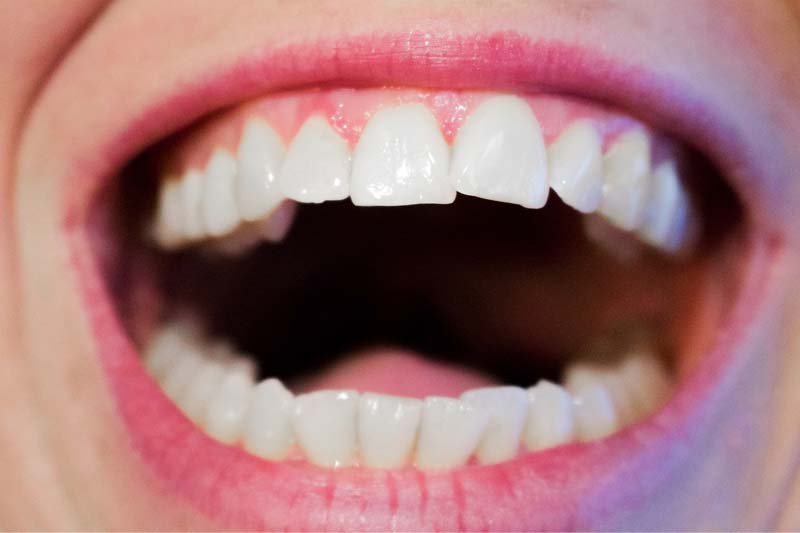The Impact of Hormonal Changes on Women’s Oral Health : Women tend to experience some unique fluctuations in hormonal levels through the course of their lives, which affects them in numerous ways. In addition to causing physical changes during puberty, menstruation, pregnancy and menopause, hormones can also have a significant impact on your oral health.
Based on my experience with female patients as an orthodontist, here’s what I think you need to know about hormonal changes and your dental health.
Why Do Hormonal Changes Affect Your Oral Health?
Hormones play a huge role in your development and growth, and are also responsible for the maintenance of various functions such as reproduction. And, while hormonal fluctuations aren’t unique to women, they tend to be more severe than the changes experienced by men.
When hormonal levels fluctuate, they can cause changes in blood supply to your gums and your body’s reaction to bacteria in dental plaque. This can raise the chances of dental problems at various stages of your life, particularly periodontal disease or gum disease.
5 Stages Where Hormonal Changes Can Affect Women’s Oral Health
Here are the 5 stages where fluctuations in hormone levels are likely to impact the health of your teeth and gums:
1. Puberty
For women, puberty and the development of ovaries is accompanied by a surge in the production of estrogen and progesterone. This causes an increase in blood flow to your gums, which affects the way gum tissue responds to the bacterial toxins found in plaque. Your gums could become tender, red or swollen, and might bleed when you’re brushing or flossing your teeth.
2. Menstruation
Your monthly menstruation cycle is also a time when progesterone and other hormones increase in your body. This can cause redness, swelling and inflammation in gum tissue, as well as bleeding gums, canker sores or swelling in salivary glands. Often called ‘menstruation gingivitis’, this generally starts a couple days before your period and stops soon after your period does.
3. Pregnancy
When you’re pregnant, your hormone levels are constantly changing, especially when it comes to increases in progesterone. This can cause mild to severe ‘pregnancy gingivitis’, since your body can’t fight plaque effectively. Some women also develop a more sensitive gag reflex or are too exhausted to follow a proper oral hygiene routine, putting teeth and gums at greater risk.
4. Birth Control
Birth control pills help you avoid unwanted pregnancies, but taking oral contraceptives that contain synthetic estrogens and progesterone can decrease natural estrogen in your body. This may lead to TMJ or temporomandibular joint disorder as well as an inflammatory reaction of gum tissue to bacterial plaque, especially during the first few months of taking oral contraceptives.
5. Menopause & Post-Menopause
Hormonal fluctuations aren’t limited to your childbearing years. During menopause, estrogen levels drop, causing increased tooth sensitivity, burning sensations and altered taste. You could also face bone loss in the jaw due to osteoporosis, and ‘dry mouth’ due to a decrease in saliva production, both of which can lead to tooth loss, gum disease and other oral health issues.
How to Prevent the Development of Gum Disease
Concerned about the effect of hormonal fluctuations on your tooth and gum health? Keep these tips in mind:
- Brush your teeth twice daily, and floss between your teeth at least once a day.
- Avoid sugary, acidic and starchy foods, and eat balanced, healthy meals.
- Drink lots of water and fresh juices, and avoid sweet fizzy drinks.
- Get orthodontic treatment for crooked, uneven or missing teeth.
- Get professional teeth cleanings and dental exams twice a year.
Hormones are necessary for growth and development, but they aren’t always easy to deal with, especially for women. Keep your teeth and gums in good shape by following proper oral hygiene and care, as well as visiting your dentist for regular checkups during pregnancy, menopause and any other times of frequent or erratic hormonal changes!
Author:
Dr. Satish Pai – an Ivy League trained dentist and a faculty at Columbia University, believes that a perfect smile not only makes a person look great but feel great while boosting confidence. As the founder of Putnam Orthodontics, he is dedicated to not only creating perfect smiles for his patients but also educating people with his engaging articles about all things related to a perfect smile and oral health. Spending time with his family always brings a smile on his face. In his free time, you can find him golfing, doing yoga or surfing.
Related Videos:
Women’s Hormones Effect Dental & Oral Health
https://www.youtube.com/watch?v=hP-dFMy9hM0?autoplay=1&rel=0
Women’s Oral health – Keep a Bright smile on everyday
https://www.youtube.com/watch?v=cTp_YTR5i7w?autoplay=1&rel=0
Important oral health considerations for women at all life stages
https://www.youtube.com/watch?v=5SQKHNETBo0?autoplay=1&rel=0
Side Effects of Birth Control | Every Woman Needs to Watch This!
https://www.youtube.com/watch?v=p–Uho1AaXw?autoplay=1&rel=0
How Menopause Affects Your Oral Health
https://www.youtube.com/watch?v=5cKsIJcE33E?autoplay=1&rel=0
The Impact of Hormonal Changes on Women’s Oral Health
hormones and mouth ulcers, hormones and tooth pain, birth control and periodontal disease, hormones and teeth sensitivity, canker sores and birth control pills, estrogen canker sores, gum inflammation and pms, menstruation gingivitis,




